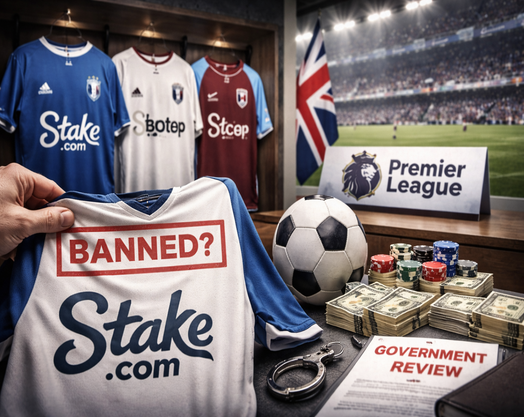- Casino News
- USA News
chicago-mayor-proposes-local-sports-betting-tax-in-2026-plan
Chicago Targets Sports Betting Revenue
Chicago Mayor Brandon Johnson has included a proposed 10.25% tax on sports betting revenue in his $16.6 billion 2026 budget, aimed at helping close a projected $1.15 billion deficit. If approved, the levy would be applied in addition to Illinois’ existing state taxes on sportsbooks.
The proposed budget, released last week, is set to take effect on January 1, 2026. In an accompanying statement, Johnson emphasized that the plan would close the budget gap “without increasing the city’s property tax levy or relying on regressive revenue measures.” He described the approach as “rooted in fairness,” combining progressive revenue generation with cost-saving measures through government modernization and efficiency initiatives.
City officials estimate that the new sports betting tax could generate approximately $26 million in additional revenue. The proposal follows recommendations from the Chicago Financial Future Task Force, which earlier this year suggested implementing a per-wager surcharge on bets made within city limits.
| Item | Details |
|---|---|
| Mayor | Brandon Johnson |
| Proposed Budget | $16.6 billion (2026) |
| Local Sports Betting Tax | 10.25% |
| Estimated Revenue | $26 million |
| Budget Deficit Closed | $1.15 billion |
| Effective Date | January 1, 2026 |
Illinois Sports Betting Taxes: Recent Increases
To offset these taxes, many operators have adjusted their fee structures. DraftKings, FanDuel, Caesars, Bet365, and Fanatics introduced per-bet service fees, while others raised minimum bet requirements. For example, BetRivers and ESPN Bet implemented $1 minimums, Hard Rock Bet set $2, BetMGM $2.50, and Circa $10. DraftKings’ fees exempt parlays over $10, straight bets over $50, and bonus bets.
The budget closes the gap without increasing the city’s property tax levy or relying on regressive revenue measures, advancing a balanced approach rooted in fairness.
National Context
Illinois is part of a broader trend of increasing taxes on sports wagering. Maryland, Ohio, New Jersey, and Louisiana have all recently raised or proposed raising their sports betting tax rates. Maryland initially proposed doubling its tax to 30%, settling on 20% in the final budget. Ohio doubled its tax to 20% in 2023, while New Jersey’s rate was increased from 13% to 19.75%. Louisiana raised its rate from 15% to 21.5% in 2025.
The proposed Chicago tax adds to a layered regulatory and fiscal framework that has seen rapid evolution. While proponents argue the levy ensures that those with the greatest capacity to contribute bear a proportionate share of the city’s revenue needs, critics may point to potential downstream effects on operators’ pricing structures, bet minimums, and overall market competitiveness. The cumulative effect of layered city and state taxes could influence both consumer behavior and the profitability of sports betting operators in Illinois.








